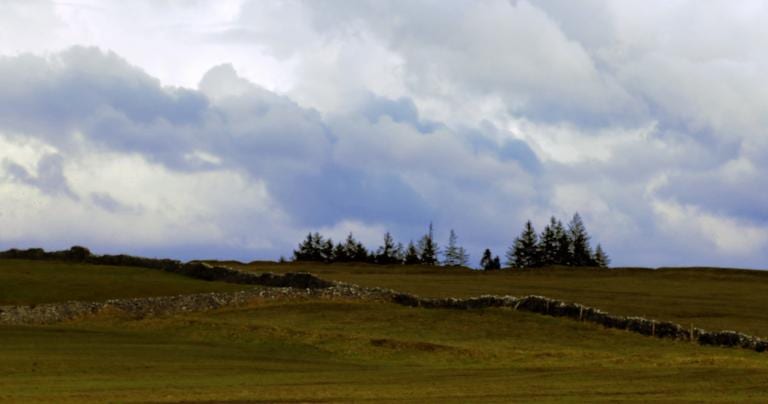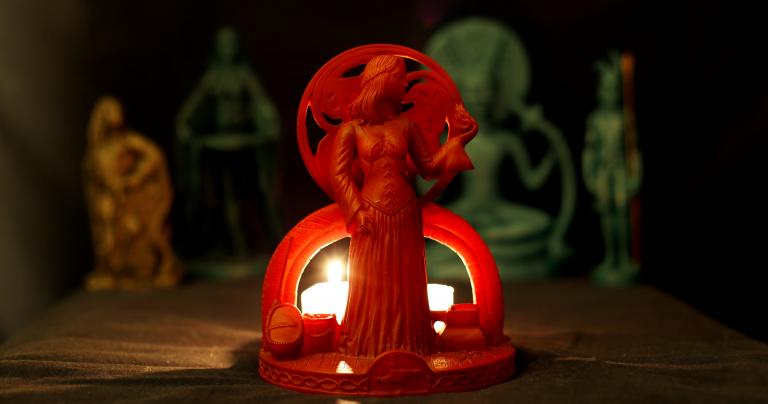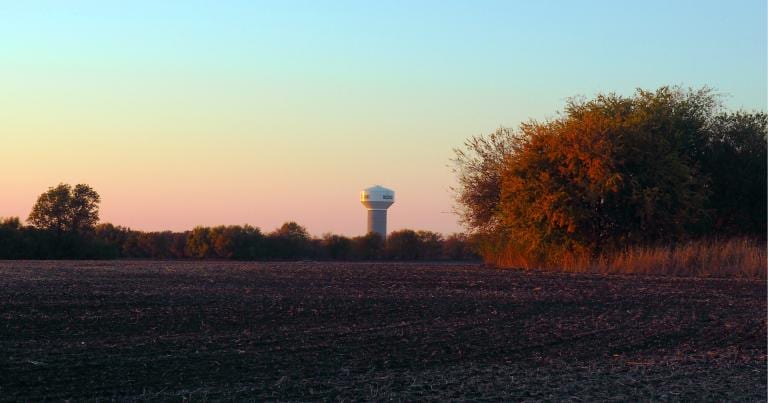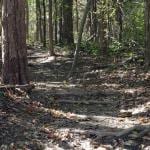Recently Morgan Daimler called attention to something I had seen but hadn’t paid much attention to: people who take DNA tests, discover ancestry in a Celtic country, then start getting UPG that they should follow Celtic Gods.
So far so good. Feeling called to the Gods of your ancestors is a good thing, and best as I can tell, a somewhat common thing.
But then the problems start.
Obsession over DNA is a path to folkishness
Then these newly-pedigreed Pagans start getting UPG (unverified personal gnosis) that they should only follow Celtic Gods. Some have reported that these deities are angry with them for even considering worshipping anyone else.
There are multiple problems here. The first is something I wrote about back in August: DNA Tests are a Curiosity, Not a Guide to Choosing a Religion. Religion is transmitted by human interaction, not by genetics. The pull of our ancestors is mostly to them, not to the Gods they worshipped. And while it’s good to know your roots, the Gods call who They call.
It’s a very short walk from “because of my DNA I should only worship Celtic Gods” to “only people with DNA like me are allowed to worship Celtic Gods.” This is the road to folkishness. As Morgan said on their Facebook page “I have seen where such things have gotten Heathenry/Asatru and it cannot be tolerated or it takes root and grows and becomes dangerously pernicious.”
The Gods call who They call, for Their own reasons. Gatekeeping – especially for others but even for yourself – is not only unnecessary, it’s insulting… and dangerous. Do you want to have to explain to the Morrigan why you told someone She called “you’d really be happier with a God from your part of the world”?
Experiences are always real – interpretations may be incorrect
One of the key elements to the polytheist religion I practice is that the Gods speak directly to us. Priests are people who have special relationships with a God and thus are especially knowledgeable and skilled in contacting and communicating with Them. But we don’t need priests to speak with the Gods. What Brighid says to you is between you and Her. So I want to respect other people’s experiences of the Gods.
But while anyone’s experience is entirely valid in and of itself, their interpretation of that experience may be more accurate or less accurate.
This is because our experiences of the Gods are always filtered through our bodies, which include our brains, which include our thoughts and feelings. Separating the divine message from our own thoughts is always a challenge.
If the message you receive is at odds with what is generally known about the deity in question – whether from ancient lore or from contemporary experience – there’s a good chance your interpretation is wrong.
While the lore says the Morrigan had children and is therefore a mother, and while She is a whole person who at times can be kind and even nurturing, that is not the essence of who and what She is. So if your UPG is that the Morrigan is a nurturing Mother Goddess, my assessment is that either you’ve misinterpreted your experience of the Morrigan, or the person you’re hearing from is someone else and not the Great Queen.
Enough Gods have made it clear enough to enough people that “They call who They call regardless of bloodlines” isn’t UPG anymore. It’s at least SPG (shared personal gnosis) and it’s pretty close to confirmed knowledge. If you’re getting a message contrary to that, you’re almost certainly wrong.
Gods are individuals and “Celtic” is a culture
I always worry when someone – especially a beginner – talks about “Celtic Gods” like They were one entity. The Gods are many, not one. And while pantheons are a thing, they’re families, not collectives or hierarchies. It’s highly unlikely the entire pantheons of Ireland, Scotland, Wales, and Gaul are speaking to these people at once. Are they talking about Brighid? Lugh? Cerridwen?
Besides, “Celtic” refers to a common language and culture, not a bloodline.
This is another example of how a real and valid divine experience can be misinterpreted in ways that are inaccurate and harmful.
Religion is best practiced in community
Pagans tend to be highly individualistic. Polytheists (both those who are also Pagans and those who aren’t) aren’t much different. Some of us are solitary practitioners because there are no groups near us, but a lot of us simply prefer to work alone. There’s no one to tell us we should do things this way or that way, plus there’s no organizational messiness. I’ve seen some go so far as to suggest that modern Paganism should only be a solitary thing.
But this situation – people thinking that Gods are angry because they worshipped deities not of their bloodline – is a prime example of why religion needs to be practiced in community.
It’s hard enough to figure out Who is talking to you. The first time They start asking you for this or that you start wondering where you should draw boundaries, or how to draw boundaries, or if it’s even possible to draw boundaries. Or maybe you’ve got questions about basic things like how to set up a shrine or what kind of offerings to make. It’s best if you have someone you can talk to who can say “here’s what worked for me” or “here’s a mistake I made that you should probably avoid.”
Or, in this case, someone who can say “hey, wait a minute – you’re going down the wrong path.”
A disturbing trend
This is the third post I’ve written in the past four months on this general topic, the others being The Gods Call Who They Call and DNA Tests are a Curiosity, Not a Guide to Choosing a Religion. None of these posts were planned – they were all written in response to questions and comments like the one that led to this.
This is disturbing. To quote Morgan Daimler again:
It is a hair’s breadth from “my Gods have ordered me to only follow Them because bloodlines” to “my Gods aren’t yours because you aren’t of the blood.”
We cannot – must not – go down that path.
Some roots can’t be discovered – they have to be grown
I understand the desire and even the need to find roots. Most of us in North America have minimal roots in this land. Our transient society (I’ve moved from Tennessee to Indiana to Georgia to Texas) makes that even worse. We dream of finding a heritage that’s mine, that provides connection and meaning.
Too many of us, though, fail to understand that mine means “where I belong” and not “what belongs to me.”
Rather than looking for roots in DNA, put down roots with the land where you are: observe it, touch it, eat it. Honor the spirits and other persons who share it with you.
Rather than looking for Gods who some of your ancestors may – or may not – have worshipped centuries ago, start forming relationships with the Gods who call to you.
And then start forming relationships with other people called by those Gods, regardless of how much DNA you share.
I know – that’s a lot harder than sending off a sample, getting back a report, and deciding that makes you a Celt.
But it’s much more authentic, which means it stands a much better chance of holding up when things get tough.
















